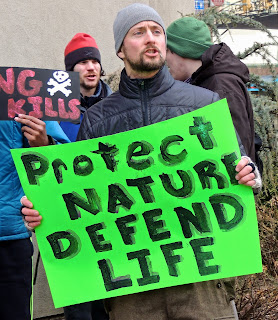ACTION: Miami, Florida, Sunday, March 20 to Friday, March 25:
WHAT: Walk for the Future Generations of All Natural Life
WHO: Aboriginals, allies, activists, groups, policymakers
WHERE: Base camp: Trail Lakes Campgrounds, 40904 Tamiami Trail East, Ochopee, FL
Begin walk: Pump Station S334, 1 mile east 177 Ave. & SW 8th St., Miami, FL
End walk: Collier Seminole State Park, 20200 Tamiami Trail E., Naples, FL
WHEN: March 19, Gathering Day at Base camp; check-in at 1:00 p.m.
March 20, Begin Walk, Pump Station S334, 9:30 a.m.
March, 25, End Walk, Collier Seminole State Park, 5:00 p.m.
A growing alliance of aboriginals, activists, and environmental groups will step up efforts to save the Florida Everglades.
In an 80-mile, six-day protest march across the Everglades and Big Cypress, from Miami to Naples, winding through seven national and state parks, a World Heritage site, and designated Outstanding Florida Waters, along the proposed route of the River of Grass Greenway (ROGG), the alliance will be inviting everyone—from legislators to land barons—to partner with them in saving South Florida.
 Their goal is to:
Their goal is to:*Stop the expansion of new Everglades oil operations and fracking,
*Shut down the River of Grass Greenway,
*Promote local and state fracking bans,
*Halt the deregulation of archeological artifacts,
*Oppose the regulation of indigenous plant gathering,
*Compel policymakers to send clean water south to restore the Everglades as mandated by Amendment 1 and the massive 30-year Comprehensive Everglades Restoration Plan (CERP).
During the walk, the alliance will stop at key points for protests and press conferences.
Everyone is encouraged to attend these to welcome walkers, hold signs, listen to speakers, and call on policymakers to reject destructive projects and unfriendly bills.
*At Pump Station S334 on the levee, they’ll address Everglades Restoration and sending clean water south
*At Raccoon Point, new irresponsible oil operations and bills that fast-track fracking
*At Monument Lake, site of the historic Seminole Conference, sacred sites and bills that threaten them
*At Big Cypress Headquarters, ROGG and seismic testing in respective petition deliveries
*At Everglades City McLeod Park, ROGG with a call for Everglades City Council and Miami Parks Service to officially withdraw their support.
*At night, everyone is welcome to meet up at base camp for fire circles. The march, press conferences, and fire circles are meant to offer ample opportunity for community engagement in defending Everglades water, wetlands, and wildlife.
 Bobby C. Billie, Council of the Original Miccosukee Simanolee
Nation Aboriginal Peoples and Betty Osceola of the Panther Clan and
Miccosukee Tribe are spearheading this alliance-building effort because
the Greater Everglades is their homeland.
Bobby C. Billie, Council of the Original Miccosukee Simanolee
Nation Aboriginal Peoples and Betty Osceola of the Panther Clan and
Miccosukee Tribe are spearheading this alliance-building effort because
the Greater Everglades is their homeland. All three indigenous communities—the Independents, Seminoles, and Miccosukees—have already had their traditional way of life threatened by irresponsible development:
 First, when the Everglades was drained.
First, when the Everglades was drained.Second, when toxic levels of mercury in the water, plants, fish, birds, and animals forced them off their tree islands deep in the Everglades.
 Bobby C.
Billie, warns that the most important concern is “the destruction of the
Natural World that sustains us all: the Earth, the Water, the Air, the
Trees, the Plants, and the Wildlife. These Creations must survive in
order that we may all survive. Nature has a right to live a life
undisturbed by further development.”
Bobby C.
Billie, warns that the most important concern is “the destruction of the
Natural World that sustains us all: the Earth, the Water, the Air, the
Trees, the Plants, and the Wildlife. These Creations must survive in
order that we may all survive. Nature has a right to live a life
undisturbed by further development.”












